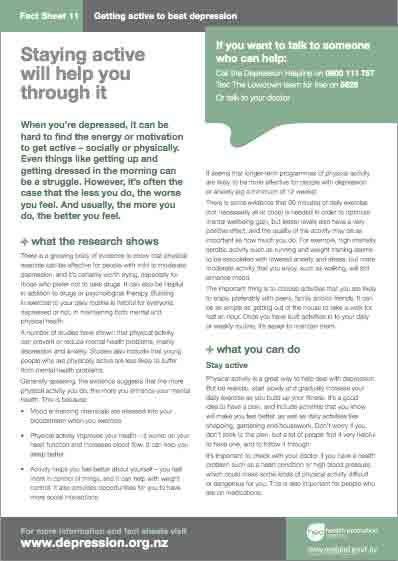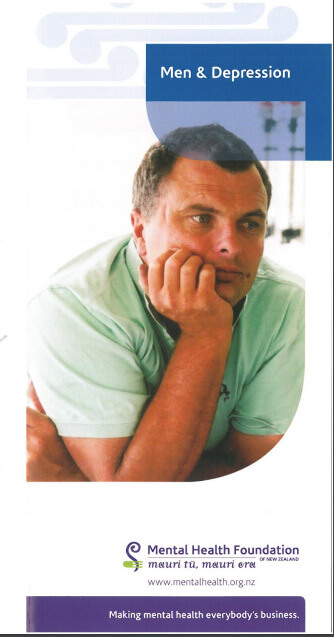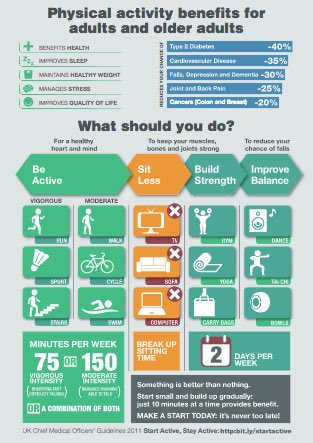Physical activity and mental health
Key points about physical activity and mental health
- We all know that exercise is vital for a healthy body, but there is increasing evidence that even moderate physical activity can improve mood and decrease anxiety.
- Physical activity is also thought to have a role in preventing serious mental illness such as depression.
- The best thing is that physical activity is for everyone!

- It releases endorphins, the body's natural painkillers that are responsible for that ‘feel-good’ factor you get after exercise.
- It improves heart and muscle function.
- It increases blood flow to the brain.
- It can improve cognitive functioning in some older people.
- It can promote better sleep.
- It can provide opportunities for socialising, making friends and being part of a community.
- It can lift your self-esteem and confidence.
- It can give you a sense of positive achievement.
- It can help with weight control.
- It can give you a sense of being in charge of your own life.
Research from Sport New Zealand(external link) shows that physically active Kiwis are more likely to have good mental health.
- People who do at least 2.5 hours of recreational physical activity each week have 51% higher odds of reporting good mental wellbeing.
- Participation in at least 4.5 hours per week increases the odds to 65%.
Even replacing sitting time with light or moderate activity will help. HealthEd NZ has plenty of information on getting active at any age.(external link)
Sport and being active are not only one of the most cost-effective ways of supporting mental health, but can also be useful for people with mild to moderate depression. However, it's important to choose an activity you enjoy, or it will be hard to find the motivation to make it a regular habit.
- Find an activity you love to do, so you stick with it.
- Talk to your GP or healthcare provider for guidance and support.
- Set realistic goals – if you're new to running, a marathon is not in your near future.
- Don't think of exercise as a chore.
- Find a friend or training pal to meet with so you can progress together.
- Prepare for setbacks – give yourself credit for every step in the right direction. Even if you skip exercise one day, or miss a team game, don't give up. Just try again the next day. You got this!
If you have specific concerns about whether you should be exercising, talk to a health professional for advice.
How much activity is recommended?(external link) Heart Foundation, NZ
Ignite(external link) Online NZ support to strengthen wellbeing
Exercise for depression(external link) NHS, UK
Depression and anxiety: Exercise eases symptoms(external link) Mayo Clinic, US
Resources
Physical activity benefits for adults and older adults(external link) GOV UK, 2011
Getting active to beat depression(external link) Health Promotion Agency, NZ, 2006
Men & depression(external link) Mental Health Foundation of NZ, 2013
References
- Physical activity for mental wellbeing(external link) Mental Health Foundation, NZ
- New research confirms physical activity is tied to healthy mental wellbeing(external link) Sport NZ, 2018
Brochures

Health Promotion Agency, NZ, 2006

Mental Health Foundation of NZ, 2013
Credits: Healthify Editorial Team. Healthify is brought to you by Health Navigator Charitable Trust.
Page last updated:






